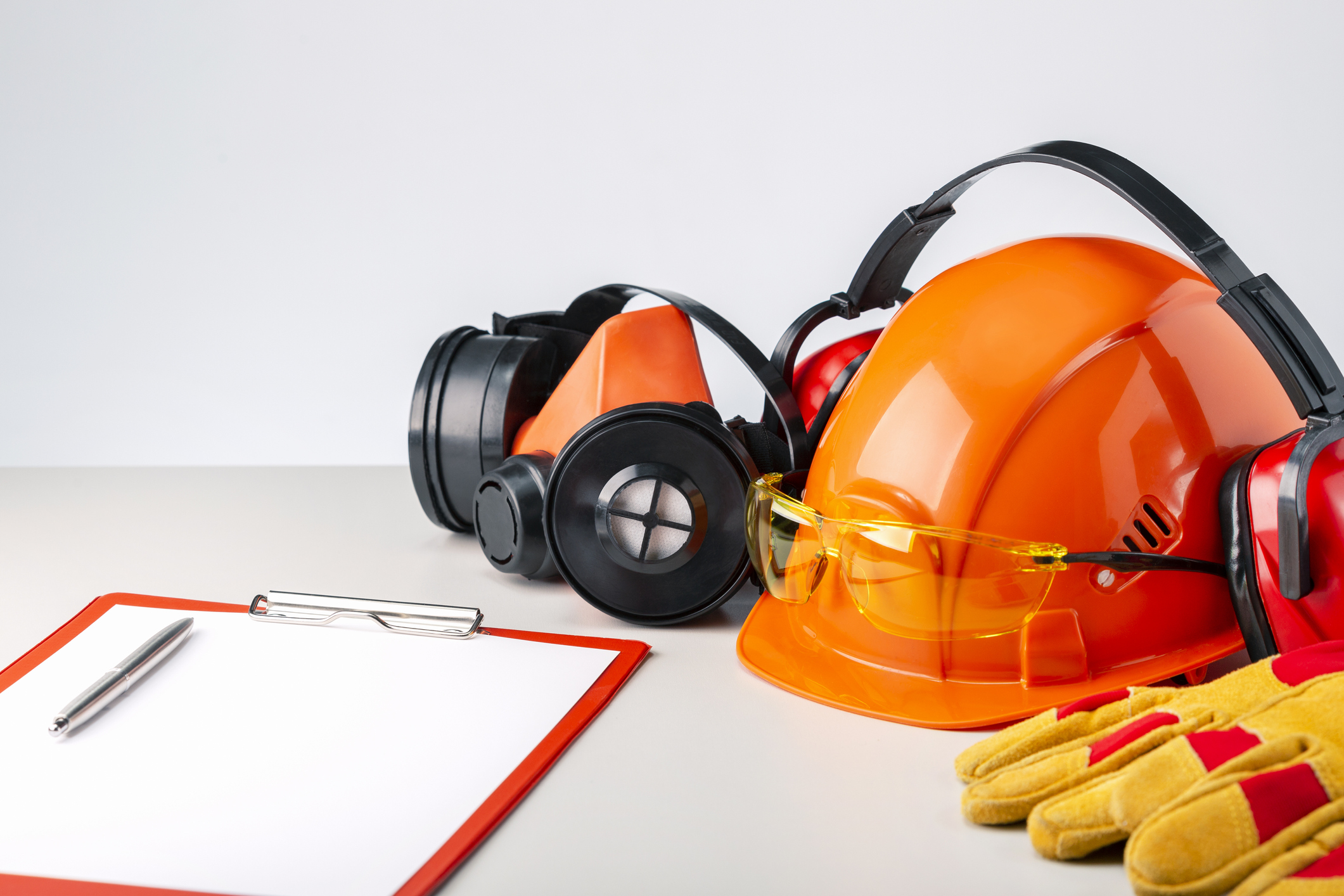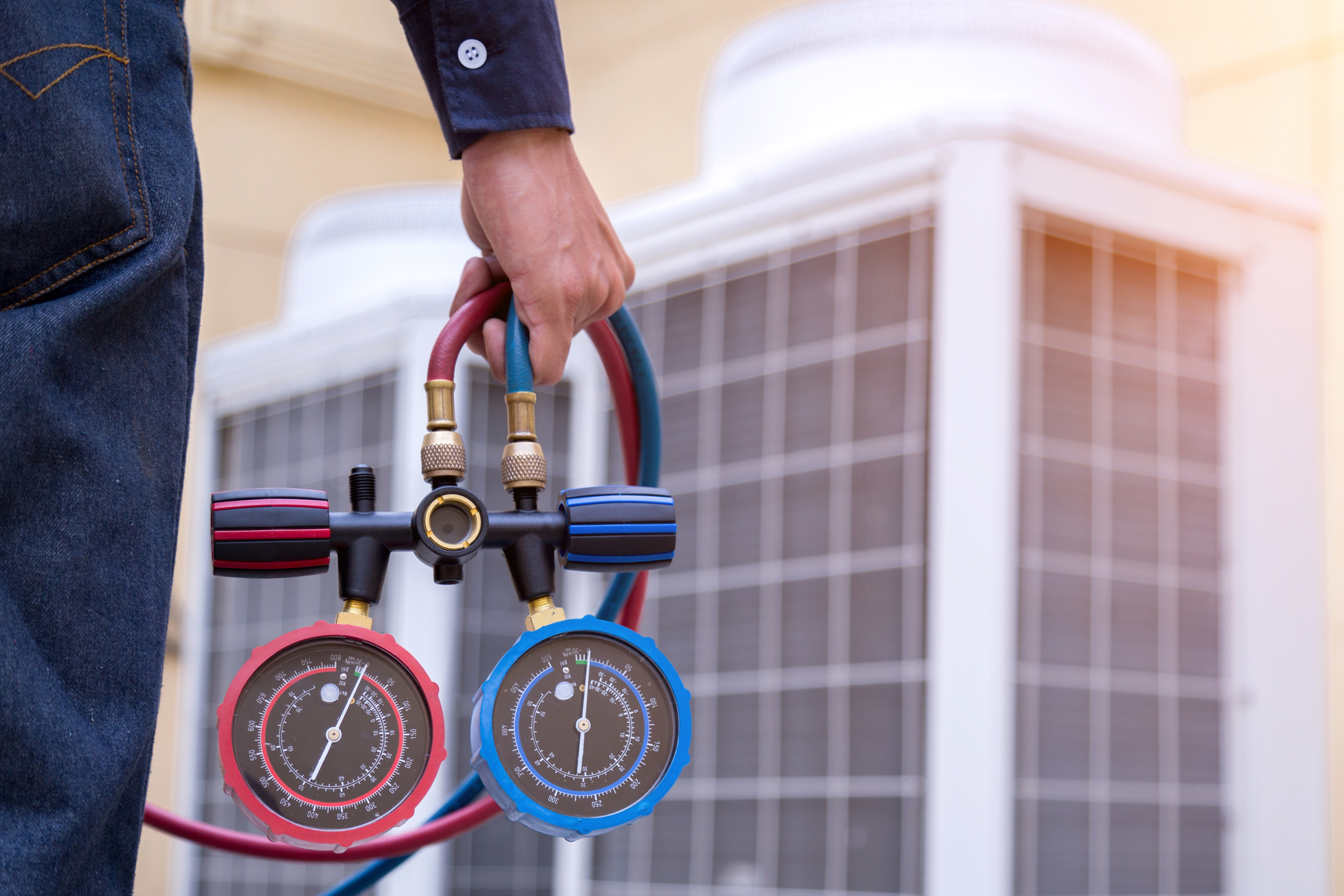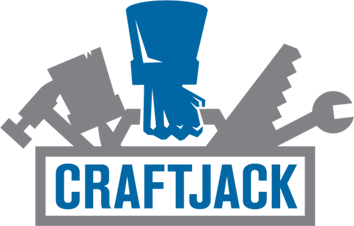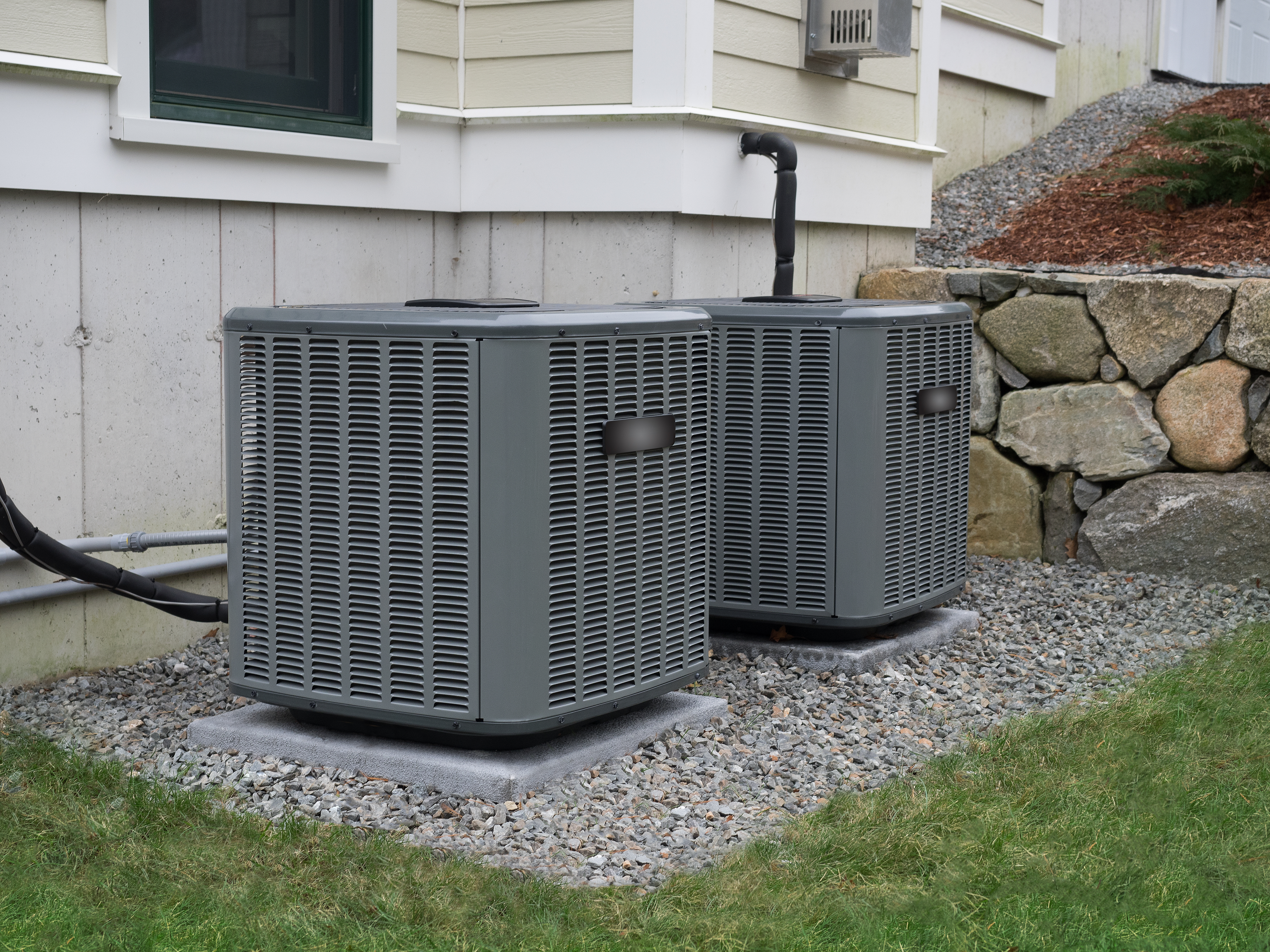Important HVAC Safety Tips for Technicians | CraftJack
Don’t work another HVAC job before checking out our top HVAC safety tips for technicians.

15 Important HVAC Safety Tips
If you're an HVAC technician, you know your job comes with risks. Before going to another work site, ensure you’re protected as much as possible. Check out these 15 HVAC safety tips that can help keep you safe and reduce the chances of workplace injury.
And when you have safety covered and are ready to find new HVAC customers, you cansign up with CraftJack to get high-quality, phone-verified leads in your area.
Is an HVAC Technician Job Dangerous?
Often, tradespeople have to deal with some level of danger when on the job. After all, they tend to work with specialized equipment and machinery and go into areas most people never go to. Being an HVAC technician is probably one of the safest trade occupations, but that doesn’t mean injuries don’t happen.
In 2020, the U.S. Department of Labor received reports of 3.3 work injuries for every 100 HVAC technicians and plumbers. In total, there were 7,900 instances of HVAC technician injuries on the job that year. This number is relatively low compared to other trade jobs where work injuries and fatalities are much more common, such as those working in the electrical, carpentry, roofing, and welding trades.
Still, accidents and injuries happen, and it’s essential to understand the risks you might be exposed to at work. In 2020, the top five HVAC technician injuries were:
- Sprains, tears, and strains (2,420)
- Cuts, lacerations (890)
- Fractures (870)
- Bruises and contusions (520)
- Heat or chemical burns and corrosions (180)
Of course, this isn't an exhaustive list of all the types of injuries an HVAC technician can incur on the job. For example, in 2020, 40 amputations related to HVAC injuries were reported. This is precisely why safety should be a top priority for every HVAC contractor.
15 HVAC Safety Tips
Here are 15 HVAC safety tips every technician should know.
1. Always Wear a Face Shield or Safety Glasses
As an HVAC technician, your face is sometimes close to the equipment you’re working on. To protect your face and eyes from flying materials, substances, dust, and debris, you should wear a face shield or safety glasses.
2. Use a Respirator with a HEPA Filter or a Face Mask
You also want to cover your mouth to prevent breathing in harmful substances like mold and chemicals. Additionally, wearing a protective mask can protect against any colds and sicknesses your customers might have.
3. Wear All Other PPE Equipment
By this point, you’re probably seeing a theme in our HVAC technician safety tips: Protect yourself by covering up. Many professions, from health care to construction to vets, require personal protective equipment. Some of the PPE HVAC technicians should consider wearing is:
- Gloves: Inner nitrile gloves can help protect you if you accidentally touch harmful substances.
- Work boots: A pair of heavy-duty work boots can protect your feet from injury if any equipment or tools are dropped on your feet.
- Hard hat: Some work sites are dangerous, and a hard hat can protect you from head injuries.
4. Check the Condition of Equipment & Tools Before Using Them
Some of the most common injuries happen when a technician uses HVAC tools or equipment that isn't functioning correctly. Always ensure you're keeping up with routine tool maintenance. As an HVAC tech, you use your tools repeatedly, and it's only natural they'll eventually succumb to some wear and tear.
Inspect your tools before starting any work, looking for defects or damage. If you notice anything, don't use that tool. Get it repaired or replaced immediately. Using the right tools can keep you safe, reduce your risk of injury, and help you do the job right.
5. Only Use the Right Tool for the Job
Another standard reason for an HVAC technician injury is a contractor realizing they're missing a tool and trying to make another work in its place. Using tools and equipment in any way other than intended leads to a high risk of injury. Tools are made with a purpose, and trying to shift them to work in another way can often lead to disaster.
If you notice you're missing a tool needed for the job, inform your client that you have to step out and get the missing device. Dealing with a mildly irritated client is better than risking your personal safety.
6. Don’t Take on Work You Don’t Have the Right Training For
It can be very tempting to take every job that comes up. After all, the last thing you want to do is miss an opportunity to capture a new client. But you mustn't accept jobs where you're not fully trained or qualified.
If you encounter a job opportunity where you're unsure you have the right skill set to complete the job, consider redirecting the customer to a more trained HVAC technician. And if this happens frequently enough, consider getting additional training or experience to take advantage of future opportunities.
Plus, you don't have to worry about letting one client go when you have a steady stream of leads available at CraftJack.
7. Remember Your Electrical Safety Training
Every HVAC technician should receive formal electrical safety training. Even if you've been on the job for 20 years and feel like you know it all, it's essential to keep your electrical safety training in mind. HVAC equipment often has high voltages and can come with an increased risk of electrical injuries. This is especially true when HVAC equipment has a leak that needs to be addressed — after all, water and electricity don't mix well.
Here are some reminders of electrical safety guidelines:
- Wear work gloves to protect yourself and reduce the risk of electrical shocks.
- Remove all jewelry and synthetic clothing before working, as it can be conductive.
- Turn off the power to the equipment before you start working on it.
- Lock equipment so others can't turn on the power while you're working on it.
- Don't use equipment in wet conditions.
- Read and follow the manufacturer's instructions.
If you notice a blown fuse, burning odors, flickering lights, buzzing sounds, hot wires, and tripping circuits, know you're likely dealing with high-risk electrical issues. Proceed with caution.

8. Remember Your Chemical Safety Training
The other common danger for HVAC technicians is dangerous chemicals. An HVAC technician has to work with chemicals on a daily or weekly basis. These chemicals can come with a lot of risk for both the HVAC professional and those in their work area.
Some general chemical safety training tips to remember are:
- Keep all chemicals in their original containers.
- Never mix chemicals.
- Use chemicals in well-ventilated areas.
- Wear gloves when dealing with chemicals.
- Keep the lids on chemical containers when not using them.
- Wear protective clothing and masks in case you spill chemicals or inhale fumes.
- Know the rules around transporting chemicals.
9. Assess Your Work Environment Before Starting
Often, an HVAC technician is put in danger while working on a job by factors outside their control. To reduce external risks, it's important to thoroughly inspect the job site before beginning any work. For example, you'll want to look out for slippery floors and children or pets running around and make sure you have adequate lighting.
If you find dangers at the job site, address them before you start any work.
10. Recognize Signs of Fatigue
It's quite common for HVAC technicians to work 10- to 12-hour days. And while these long days may be nice for the wallet, they aren't great for the mind or body. Once you start working past the 8-hour mark, you'll notice you're more tired and might have trouble focusing. If you're overly fatigued, you're more likely to make a mistake and endanger yourself and others.
Always keep an eye on yourself and recognize the signs of fatigue, such as:
- Difficulty keeping your eyes open.
- Problems concentrating, completing tasks, or keeping up with a conversation.
If you notice you're tired, pause the job and go home. The work will still be there for you another day.
And don't overcommit yourself in the future. Limit yourself to working days that don't exceed 8-10 hours, and never work long days back-to-back.
11. Drive Carefully
All HVAC technicians must commute to their job sites throughout the day. Whether you're tired or late to your next customer, it can be tempting to speed while on the road. But this puts you at a higher risk of getting into a car accident. So, drive slowly and safely to ensure you get there in one piece.
12. Remember Ladder Safety
HVAC contractors often use ladders when working. And while ladders seem very straightforward to use, they can come with a lot of danger. Follow the three-point rule whenever using a ladder: Between your two feet and your two hands, you should always have three parts of your body firmly touching the ladder. This gives you enough balance to catch yourself if you slip.
13. Don’t Rush Through Work
Injuries and accidents on the job often happen because a technician is rushing. It doesn't matter if you're late for your next appointment or want to get home to your family; always take your time and do the job right. Going slow and steady reduces the risk of mistakes and injuries, keeping everyone safe.
14. Only Work with Other Trained, Certified Technicians
HVAC technicians require training. If you ever work with another HVAC technician, your safety is in their hands too. For example, if they make a mistake, it could harm you or your customer. So, if you ever have the chance to work with other HVAC technicians, verify they're trained and experienced so they're not putting you in harm's way.
15. Leave a Job if You’re Uncomfortable
Sometimes a safety issue isn't from your equipment or the work but from the job site itself. You should immediately leave if you feel unsafe at your job site due to risky conditions, aggressive customers, or any other reason. Your security is the priority, and you don't have to work at a job site that makes you feel unsafe.
HVAC Safety Standards Matter
There's a reason so much HVAC training focuses on safety. In their day-to-day, an HVAC technician comes across many risky situations. Focusing on safety practices keeps everyone safe — the HVAC technician, the customer, and anyone else nearby.
Both employers and HVAC contractors must abide by standard Occupational Safety & Health Administration rules and regulations. OSHA rules vary across occupations, but for HVAC, clear regulations are set in place around:
- Hazardous materials
- Fire safety
- Machinery standards
- Respiratory protection
- Ergonomics
- Confined space entry
- Electrical safety
- Fall arrest systems
HVAC Safety Best Practices
Our comprehensive 15 safety tips should keep you safe at any HVAC job site. But, to add to the above, here are some standard HVAC safety best practices every technician should follow:
- Always wear PPE — the more, the better.
- Talk to a customer and get all the information possible before starting a job.
- Assume danger is around and take caution with everything you do.
- Don't hesitate to ask for help.
- Keep up to date with all the latest in HVAC technologies so you know how to use new tools.
Processes to Ensure HVAC Technician Safety
Unfortunately, HVAC technicians have to deal with a level of risk. Still, some processes can help reduce the risk of accidents or injuries. Some of those processes are:
- Review training courses every year or two to ensure you're up to date on safety standards.
- Have a safety reminder sheet you glance over before entering any job site.
- Pack extra PPE in your work vehicle so you always have backups.
- Track hours worked; keep yourself from going into too much overtime.
- Get insurance so you're covered financially if an accident does happen.
- Provide your clients with accurate estimates to avoid confrontations or disputes around billing.
Time to Work … Safely
Now that you know how to keep yourself safe, it's time to find some HVAC clients. New, qualified leads are always available at CraftJack. With the right leads and the right safety processes, you and your HVAC business can thrive.


